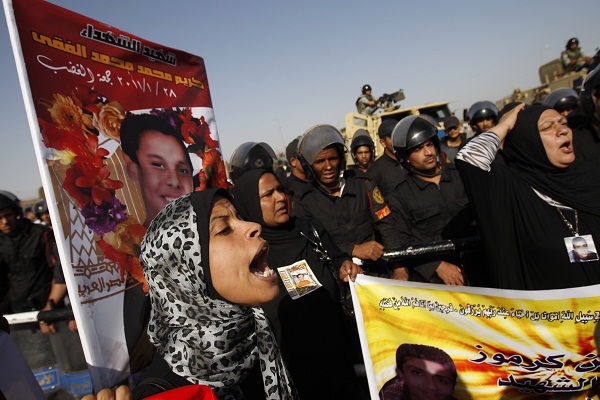The situation in Egypt remains perilous, as protests mount against the military government which has delayed announcing the result of last weekend’s vote. Preliminary estimates, overseen by a panel of judges, put the Muslim Brotherhood ahead by 900,000 votes. But this is being contested by former Mubarak henchman, Ahmed Shafiq. Election monitors are examining more than a hundred alleged cases of multiple election fraud.
This is the latest popular grievance against the military government, which has prorogued parliament, deferred parliamentary elections and suspended rights of demonstration in recent weeks. The BBC reports that human rights campaigners and democracy activists are warning that a ‘meaningful transfer of powers’ will not take place, and that the military is in effect staging a coup by controlling the pace and scope of transition. The other side of the argument is that the army is trying to keep an uneasy peace.
The situation has inspired calls for the West to act. This week’s Economist, for instance, argues that the West should hold its nose and support the Islamists, who, it claims, have trounced the secular reformers. Others would counsel caution, suggesting that 900,000 votes is a meaningless figure amid such chaos, adding that bad foreign policy is usually forged from too little information.
Certainly, it is arch-hypocrisy to preach democracy and then work against it, even indirectly. But, can the West, from its current blind position, even say anything ‘meaningful’ about Egypt? That’s not a rhetorical question; CoffeeHousers, over to you.
David Blackburn
What can the West do about the turmoil in Egypt?






Comments